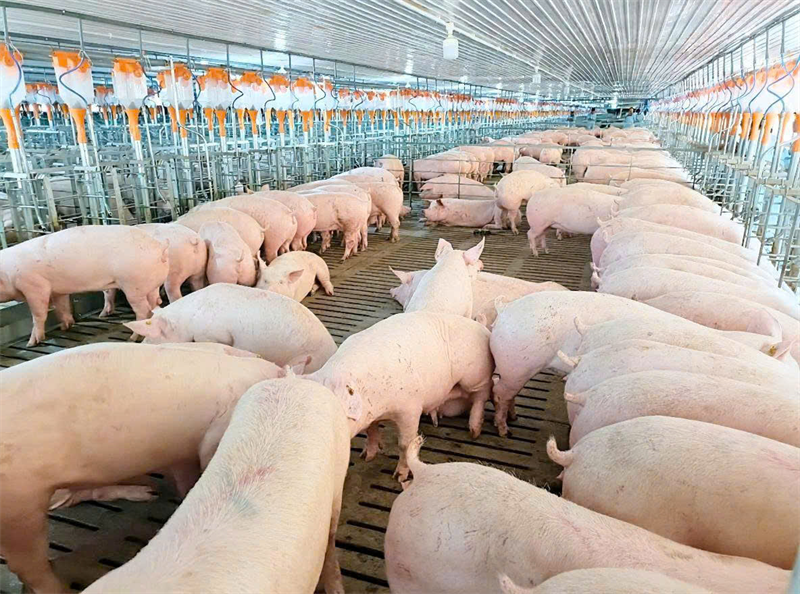Vietnam’s livestock industry is undergoing urgent restructuring—not only to enhance productivity and efficiency, but also to align with global standards of animal welfare, sustainability, and international integration. In this context, Mavin Group—a leading agri-food enterprise with Australian investment—has pioneered the adoption of group housing for gestating sows, integrated with automated feeding systems and free farrowing pens.
Advanced Technology – The Core of Group Housing
In May 2025, Mavin launched a pilot group housing model at a 500-sow farm in Hung Yen province. At the heart of this innovative system is a suite of intelligent technologies imported from Canada, including:
- RFID Ear Tag Identification: Each sow is fitted with an electronic tag for individualized tracking and management.
- Automated Feeding Systems: Gestal 3G (for gestating sows in groups) and Gestal Quattro/Solo+ (for lactating sows), delivering precise feed portions tailored to each animal’s actual needs and schedule.
These systems minimize feed competition and stress, reduce waste, and optimize health and productivity. Real-time feeding behavior and intake data are continuously monitored, allowing technicians to identify anomalies and provide timely intervention. In addition, Mavin has implemented free farrowing pens, allowing sows to move freely, nest, and care for piglets naturally—improving maternal health and milk production.

Mavin is a pioneer in applying smart technology to group housing for sows
A Humane Model – In Line with Global Best Practices
Group housing for gestating sows, widely adopted in advanced livestock industries such as Europe, the United States, and Australia, delivers significant benefits in both animal welfare and sustainable productivity:
- Enhanced Animal Welfare: Compared to conventional individual crates (confined to 1.5–3 m²), group housing allows sows to walk, turn, and engage in social behaviors—reducing stress and improving both physical and mental well-being.
- Improved Health and Immunity: Less stress and more movement contribute to stronger immune systems, fewer illnesses, and reduced reliance on antibiotics.
- Sustainable Productivity: Although initial investment is higher, group-housed sows tend to have better reproductive performance and longer productive lifespans—translating into long-term economic gains for farms.
Importantly, group housing and animal welfare compliance are becoming mandatory standards for pork exports to major markets such as the EU, US, Canada, Australia, and New Zealand. Global buyers and food retailers increasingly require proof of responsible and ethical farming systems.
Strategic Vision for Vietnam’s Livestock Sector
For both Vietnam’s livestock industry and Mavin Group, transitioning to group housing is not only a response to international demands, but a strategic step toward enhancing Vietnam’s position in the global food supply chain and building a more modern, humane agricultural sector.
Following the success of this pilot model, Mavin plans to expand group housing to other company-owned farms. At the same time, the Group continues to invest in smart farming technologies and environmentally responsible practices—moving toward a green, clean, efficient, and humane agricultural ecosystem.
The pioneering implementation of group housing for sows is not only a technological advancement in livestock farming but also a testament to Mavin Group’s strategic vision and commitment to sustainable development. This initiative also reflects Mavin’s efforts to fulfill its commitments to international strategic partners such as the International Finance Corporation (IFC) in raising livestock standards in Vietnam and improving animal welfare.
With over 20 years of dedication to Vietnamese farmers, Mavin firmly believes that sustainable development is not only the right long-term path, but also a responsibility and an opportunity to elevate Vietnam’s livestock industry toward global standards.